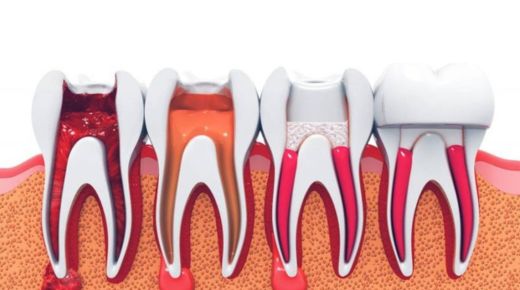I used to think dental check-ups were just about keeping my teeth clean and cavity-free. However, I soon discovered that regular visits to the dentist play a crucial role in maintaining overall health. From detecting early signs of serious conditions to preventing infections that could spread throughout the body, dental check-ups are far more significant than many realize.
It turns out our mouths are windows to our overall health. Dentists can spot symptoms of systemic diseases like diabetes or heart disease during a routine exam.
By prioritizing regular dental visits, I’m not just investing in a bright smile but also safeguarding my long-term well-being. To learn more about maintaining overall health and well-being, consider exploring life coaching and wellness programs that focus on integrating health practices for a holistic approach to well-being.
The Connection Between Oral Health And Overall Health
Oral health impacts much more than just one’s teeth and gums. It’s integral to overall wellness, influencing various bodily functions and systems.
How Oral Health Affects The Body
Infections in the mouth can spread to other parts of the body. Bacteria from gum disease can travel through the bloodstream, leading to inflammation elsewhere. Pregnant women, for example, are at higher risk for complications due to oral infections, as noted by the American Dental Association. Poor oral health also affects the body’s ability to manage blood sugar, exacerbating diabetes.
Common Health Issues Linked To Poor Oral Health
Several systemic conditions share links with poor oral health. Cardiovascular disease, for instance, is often associated with gum disease. Studies from the American Heart Association show that people with periodontal disease have twice the risk of heart disease. Respiratory issues, like pneumonia, can arise from inhaling bacteria from infected gums. Oral bacteria can also contribute to endocarditis, an infection of the heart’s inner lining.
Benefits Of Regular Dental Check-ups
Regular dental check-ups offer multiple benefits that extend beyond a healthy smile. Professional dental care plays a crucial role in detecting and preventing broader health issues.
Early Detection Of Dental Problems
Dentists can identify dental issues early. Regular check-ups help detect cavities, gum diseases, and oral cancer in their initial stages. Early detection makes treatments less invasive and less expensive compared to advanced stage treatments. For instance, treating a small cavity is simpler and less costly than dealing with root canal infection.
Prevention Of Systemic Diseases
Oral health links directly to systemic health. Dentists monitor gum health, reducing risks of bacteria entering the bloodstream. Good oral hygiene prevents inflammation related to heart disease, respiratory issues, and diabetes complications. Regular dental visits help manage these risks efficiently. For example, managing periodontal disease lowers the chance of developing cardiovascular conditions.
What To Expect During A Dental Check-up
Regular dental check-ups are essential for maintaining overall health. During these visits, several key procedures ensure comprehensive care.
Routine Examination
During a routine examination, the dentist examines my teeth, gums, and mouth. They look for signs of cavities, gum disease, and other oral health issues. Using tools like a small mirror and probe, they inspect hard-to-see areas. If they suspect any problems, they take notes for further examination or treatment.
Professional Cleaning
Professional cleaning is crucial for removing plaque and tartar buildup. Dental hygienists use special instruments to clean areas I can’t reach with regular brushing and flossing. They may use an ultrasonic scaler for more efficient tartar removal. After cleaning, they polish my teeth to remove surface stains and make them smooth, which helps prevent plaque accumulation.
Diagnostic X-rays
Diagnostic X-rays provide a detailed view of my teeth and jaw. They help identify issues not visible during a routine examination, such as impacted teeth, abscesses, or bone loss. The dentist reviews these images to detect cavities, monitor tooth development, and plan necessary treatments. Depending on my dental health, I might get X-rays annually or less frequently.
Overcoming Common Barriers To Dental Visits
Visiting the dentist regularly can feel daunting for many. Several barriers often prevent timely dental check-ups.
Cost And Insurance Concerns
Dental expenses can be a significant concern. Many people avoid visits due to perceived high costs. Without insurance, out-of-pocket payments seem burdensome. It’s crucial to recognize the long-term savings associated with preventive care. Regular check-ups catch issues early, leading to less expensive treatments compared to advanced dental problems. I recommend exploring various insurance plans. Some offer affordable premiums covering routine exams and cleanings. Additionally, many dental offices provide payment plans. Discussing these options with your dentist can make dental care more accessible financially.
Fear And Anxiety
Dental anxiety is a common issue. Fear of pain, needles, or past negative experiences often deter visits. Understanding that modern dentistry has evolved significantly helps. Current techniques focus on minimizing discomfort. Dentists now use advanced pain management techniques, making procedures more comfortable. If anxiety persists, many practices offer sedation dentistry. This includes options like nitrous oxide, oral sedatives, or IV sedation. Communicating your fears with your dentist can also ease anxiety. They can adjust their approach to ensure a more relaxed experience.
Regular dental check-ups offer numerous benefits. Cost and anxiety should not prevent anyone from maintaining optimal oral health.
Tips For Maintaining Oral Health Between Visits
Regular dental check-ups are vital, but maintaining oral hygiene between appointments ensures long-term health. Adopt these strategies to keep your mouth healthy daily.
Daily Oral Hygiene Practices
Brush teeth twice daily with fluoride toothpaste. Use a soft-bristled toothbrush to avoid damaging enamel. Floss daily to remove plaque from areas that brushing might miss. Rinse with an antimicrobial mouthwash to reduce bacteria. Clean the tongue to eliminate bacteria and freshen breath. Replace your toothbrush every three to four months or sooner if bristles become frayed.
Diet And Lifestyle Choices
Limit sugary drinks and snacks to prevent cavities. Choose water or tea over sugary beverages. Consume a balanced diet rich in fruits, vegetables, and dairy products. Avoid tobacco products which increase the risk of gum disease and oral cancer. Limit alcohol intake since it can dry out the mouth, reducing saliva and increasing decay risk. Chew sugar-free gum to stimulate saliva flow and help cleanse the mouth.




